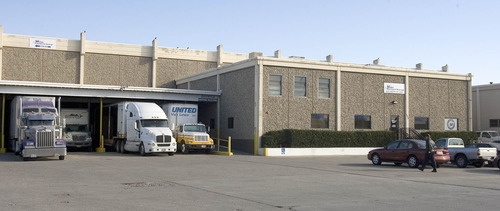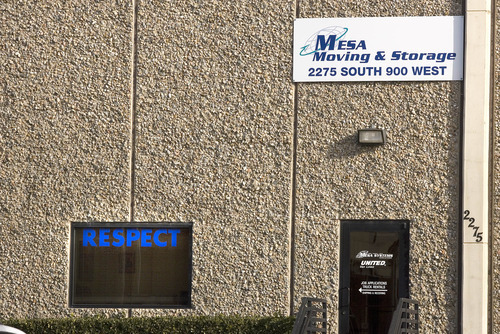This is an archived article that was published on sltrib.com in 2012, and information in the article may be outdated. It is provided only for personal research purposes and may not be reprinted.
Mesa Systems, a Salt Lake City transportation and moving company, is facing a federal lawsuit on allegations of discrimination against employees of foreign origin.
Equal Employment Opportunity Commission lawyer Mary Jo O'Neill said the complaint filed Dec. 23 stems from an investigation begun in 2007 when the agency started receiving complaints.
Mesa, based in Colorado, implemented a policy in 2006 that required Salt Lake employees to communicate only in English, according to the EEOC suit. It said the measure was aimed at employees who, because of their nationality or ethnic origin, speak another language.
The policy targeted Latinos, especially Mexicans, who, the complaint said, were often victims of "insults and verbal abuse" by a warehouse manager and other supervisors who humiliated the employees by calling them such things as "stupid Mexican," "damn Mexican" and "mojado," (wetback) and other terms listed in the lawsuit as "expletive deleted."
"The insults and offensive comments that mock the nationality [of a person] violate Title VII [of the Civil Rights Act of 1964] and are not appropriate for a workplace. Such conduct is defined as a hostile work environment," said O'Neill.
She said 11 employees — nine Latinos and two Polynesians — were directly affected by continuing discriminatory attacks. Their work hours were cut, and some were fired after reporting the abuse to the EEOC.
Mesa officials did not return calls seeking comment, so it is unknown whether their English-only policy in Salt Lake City is still in effect. Of note, its motto is "Pride, Respect and Trust." O'Neill said the current status of the policy "will be discovered during the litigation."
At least one employee received a written warning for speaking Spanish. The April 4, 2007, memo said future violations of the policy could be grounds for firing.
Juan Manuel Ruiz, president of the Latin American Chamber of Commerce, said it has an official position calling for "zero tolerance against civil rights abuses and labor by companies to their workers."
"It's a shame that this type of intolerance happens in Utah, given its traditional respect for cultural diversity and ideological tolerance," Ruiz said.
Marty Carpenter, communications director for the Salt Lake Chamber of Commerce, declined to comment specifically on this case but said the chamber has a policy against discrimination.
Part of that policy says, "Discrimination is not only wrong, it is bad for business. A patchwork of non-discrimination ordinances currently exists in the state. We support a standardized statewide non-discrimination ordinance, modeled after that passed in Salt Lake City and 11 other local governments in Utah."
Ulises Rodriguez, protection consul at the Mexican consulate in Salt Lake City, said that from August to December last year, his office received 24 cases of alleged abuse by employers.
"What we suggest to our fellow Mexicans is that when faced with discrimination as happened with Mesa, is to come to the consulate and report it because we can help raise complaints to the appropriate organizations," Rodriguez said.
O'Neill said that during the past 10 years, the EEOC has filed between two and six lawsuits a year against Utah companies for civil-rights violations.
The suit by the EEOC seeks back pay, lost benefits, damages and reinstatement of the dismissed employees, as well as establishing measures to prevent future violations.





